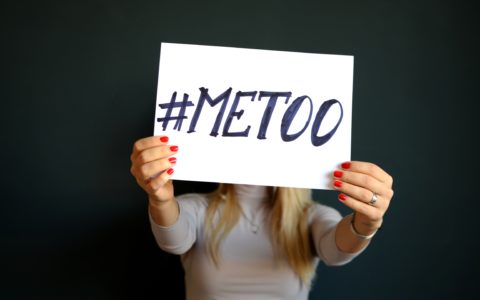Signs of Sexual Abuse: What You Need to Know
Christian Counselor Spokane
 In my line of work, I often work with children, teens, and adults who have been sexually assaulted. Upon my first conversations regarding the victimization, children are often embarrassed to talk about it. I don’t blame them, as oftentimes by the time they come in, they have formed negative beliefs about themselves and the role they played in the abuse.
In my line of work, I often work with children, teens, and adults who have been sexually assaulted. Upon my first conversations regarding the victimization, children are often embarrassed to talk about it. I don’t blame them, as oftentimes by the time they come in, they have formed negative beliefs about themselves and the role they played in the abuse.
Most victims also don’t want to get punished or get their abuser into even more trouble as sometimes the perpetrator has made threats to keep them quiet. This is the reason why it’s crucial to be on the look-out for signs of sexual abuse.
What is Sexual Abuse?
Sexual abuse includes any type of sexually related victimization. It includes sexual invasions whether it is touching or penetration of a person’s body without their consent (Reddington & Kreisel, 2005). It could also include exposing oneself, sharing pictures of sexual acts, or taking inappropriate photos or videos of a child, teen, or adult.
Statistics
Crimes Against Children Research Center (2012), found that:
- 1 in 4 girls and 1 in 6 boys are victims of child sexual abuse;
- Children are most vulnerable to sex abuse between the ages of 7 and 13.
Who Abuses?
Anyone has the potential to cause harm to another individual. There are certain characteristics you should be particularly aware of when allowing others to interact with your loved one. Of those victimized:
- 6 out of 10 abusers are family friends, caregivers, babysitters, or neighbors;
- 3 out of 10 are family members of the child (i.e. fathers, uncles, or cousins);
- The abuser is a stranger in only about 1 out of 10 times;
- Abusers are men in most cases; but, may also be women;
- Pornographers and strangers may make contact through the internet. (National Center for PTSD, n.d.)
Affects
Sexual crimes can have a serious impact on the life and development of a person. It can also impact the survivor later in life. Learning the warning signs of sexual abuse is often the first step to protecting a child that is in danger. If you can spot and stop sexual abuse early enough, it may prevent lifelong damage and pain to another individual.
Common Signs of Sexual Abuse
It’s not always easy to spot signs of sexual abuse because perpetrators often take steps to hide their actions. The bottom line is to listen to your instincts; if something doesn’t seem right or makes you feel uncomfortable, take the time to ask your loved one questions. It’s better to ask than put a child in danger.
Physical Warning Signs:
- Pregnancy
- Sexually transmitted infections (STIs)
- Signs of trauma to the genital area, anus or mouth (unexplained bleeding, discoloration, discharge, bruising, soreness, or pain
- Unexplained money or gifts
Behavioral Signs:
- Acting out in inappropriate sexual ways with toys or objects
- Avoiding bathing
- Avoiding changing clothes in front of others
- Becoming unusually secretive
- Bedwetting/soiling the bed after being potty trained
- Changes in eating habits
- Difficulty focusing
- Drop out of school
- Knowledge of sexual acts inappropriate for their age
- Nightmares
- Returning to thumb sucking after outgrowing it
- Running away
- Self-harm (cutting, burning or other harmful activities)
- Sexual behavior that is inappropriate for the child’s age
- Skipping school
- Sleeping problems
- Talking about a new, older friend
Emotional Signs:
- Becoming very clingy
- Becoming withdrawn
- Excessive worry
- Fear of being alone at night
- Fear of being left alone with certain people
- Fear of certain places
- Fear to be away from the primary caregiver
- Increased insecure
- Mood swings
- Outburst of anger
- Sudden unexplained personality changes
Why Most Victims Don’t Report
 According to The Survivor’s Guide (1995), victims of sexual abuse sometimes suffer from triggers of the abuse when they encounter something that reminds them of the exploitation. This may lead to panic attacks which can be manifested as being very afraid or upset, feeling paranoid, trembling or shaking, difficulty thinking or concentrating, feeling numb, feeling out of control, dissociation (out of body experience), a sudden need to start crying, feeling confused, or feeling as if things are unreal or in a dream.
According to The Survivor’s Guide (1995), victims of sexual abuse sometimes suffer from triggers of the abuse when they encounter something that reminds them of the exploitation. This may lead to panic attacks which can be manifested as being very afraid or upset, feeling paranoid, trembling or shaking, difficulty thinking or concentrating, feeling numb, feeling out of control, dissociation (out of body experience), a sudden need to start crying, feeling confused, or feeling as if things are unreal or in a dream.
In addition, they may suffer from flashbacks and intrusive memories. While flashbacks take the victim back to the time, place, and situation like a picture, intrusive memories bring the memory of the abuse to life, making it seem like the abuse is happening all over again.
Equally as scary for the victim are nightmares. These bad dreams make the victim feel like the offender will come back and hurt them all over again. These symptoms often prevent victims from seeking help.
Another reason why some victims don’t report the abuse is self-preservation. A coping mechanism common among sexually abused victims is memory gaps. These are blank spots in a person’s memory that are hidden in the brain so that a person does not have access to them. The brain does this to protect the person from feeling overwhelmed with emotion. From time to time though, the brain provides memories in small sections and eventually fills in memories of the exploitation.
Even though the trauma was experienced at an early age, gathering all the details of the exploitation become as raw as when it happened, at which time, bodies physically react to old memories that pervade the mind.
Often, these memories are triggered in interactions with others, movies, television shows, or after they discover their child has also been sexually abused. Sadly, it is not until emotions run high and they become desperate that they reach out for help. It is at this time that they set an appointment with a mental health professional.
In Child Sexual Abuse: Disclosure, Delay, and Denial (2007), it is estimated that only fifty percent of child abuse victims receive mental health services after being exploited. It is imperative for victims to receive counseling to resolve any issues that they may experience so that the victim does not become even more depressed, suicidal, or become perpetrators themselves.
Reasons to Intervene
Often, people who hear that someone they love or know have been sexually traumatized shy away when it’s time to help. Some people become fearful of getting involved in someone else’s problems, fear being triggered of their own abuse, don’t know how to help, or are fearful of being involved with Child or Adult Protective Services.
 However, it is of the essence to put oneself aside and help this traumatized human being. If left untreated or unreported, sexually exploited individuals have a high risk of developing low self-esteem, feelings of worthlessness and forming an abnormal or distorted view of sex. They can also become withdrawn, mistrustful of others, and can become suicidal. It is quite common for an exploited individual to develop Post-Traumatic Stress Disorder (PTSD).
However, it is of the essence to put oneself aside and help this traumatized human being. If left untreated or unreported, sexually exploited individuals have a high risk of developing low self-esteem, feelings of worthlessness and forming an abnormal or distorted view of sex. They can also become withdrawn, mistrustful of others, and can become suicidal. It is quite common for an exploited individual to develop Post-Traumatic Stress Disorder (PTSD).
Feeling this way is no way to live. No one should resort to negative patterns of behavior to numb or deal with the pain. Sometimes, sexually abused victims feel as if the memory is too unbearable, they begin to self-harm by cutting or burning themselves. Participating in these maladaptive behaviors allows exploited individuals to feel in control because at least they know where the pain is coming from; as they can control how much, how often, and what kind of pain they allow.
Another way that a survivor attempts to escape from the pain of the abuse is by utilizing drugs and alcohol to numb and avoid the feeling of emptiness they feel inside. Often a survivor feels like they do not have any power or control since the perpetrator forced them to have sex against their will. To feel less of a victim and more powerful and in control, they begin to lie, keep secrets, have sex, seduce, and play the victim.
It is common for victims to blame themselves for the abuse, view themselves as damaged-goods, and feel unclean or dirty. They also dissociate themselves from hurtful things that are happening or have happened to them in the past.
While victims often avoid interactions with others for the purpose of self-protection, their isolation contributes to a hindrance in making friends, inability to be transparent, and the inability to open up to others. This perpetuates the cycle of loneliness. To fulfill their need for affection, attention, and love, they have sex.
What to Do
Thinking your loved one has been or is being sexually abused? If you suspect something isn’t right, ask. Look for signs. If they tell you that someone is making them feel uncomfortable, listen. Avoid putting them in a potentially unsafe situation by preventing further contact with that individual. Once they are safe, reach out to police, a doctor, hospital, teacher, school counselor, a therapist, or a sexual assault service provider such as Lutheran Services of Spokane.
The sooner that they undergo treatment, the better, as their symptoms can worsen or become chronic. Research shows that trauma-focused cognitive-behavioral therapy (TF-CBT) was the most effective therapy in reducing PTSD.
This therapy includes discussing the traumatic memories, acknowledgements, and perceptions of the abuse. It teaches how to cope with depression, deal with anxiety, train behavioral techniques for adverse behaviors. As well, it addresses distorted thinking about self-blame, safety, and trustworthiness of others.
Psychotropic medication plays only a minor role in the treatment of sexually abused children. Although there is no empirical evidence of their effectiveness, they are often prescribed. (Hilarski, Wodarski, & Feit, 2008). Not only do survivors experience mental health challenges; but, clinical research shows that victims can also suffer from intestinal and gynecologic issues and headaches.
A Note from the Author
 It is hard finding someone qualified to help process sexual traumatization. First, they must have the skills and experience with such trauma. They must also be a good match for you or your loved one. If you don’t feel like you can trust them enough to open up to them, they are not a good fit. A therapist should welcome you warmly, provide a safe and trusting environment, be non-judgmental, hold you accountable, and be able to be authentic and transparent.
It is hard finding someone qualified to help process sexual traumatization. First, they must have the skills and experience with such trauma. They must also be a good match for you or your loved one. If you don’t feel like you can trust them enough to open up to them, they are not a good fit. A therapist should welcome you warmly, provide a safe and trusting environment, be non-judgmental, hold you accountable, and be able to be authentic and transparent.
At Spokane Christian Counseling, I can provide you with all of the above. An aspect I love about working with this organization is the ability to bring religion into my work. Agencies who are not allowed to provide for the spiritual aspect of your being, are missing an important part of who you are.
Helping people with the “bio-psycho-social-spiritual” aspects of their lives allows me to completely heal a person. It brings me much joy when clients come in and share their progress with me; especially when they first arrived completely distraught, unable to deal with their life. Please allow me the privilege to help you through this nightmare of a time. Call me. I am here for you.
Sincerely,
Karina Anderson
References
Hilarski, C., Wodarski, J.S., & Feit, M.D. (2008). Handbook of Social Work in Child and Adolescent Sexual Abuse. New York, NY: Haworth. Print. 165+
Lamb, M.E., Orbach, Y., & Cederborg, A. (2007). Child Sexual Abuse: Disclosure, Delay, and Denial. By Margaret-Ellen Pipe. Mahwah, New Jersey: Lawrence Erlbaum Associates. 226+. Print.
Lee, S.A. (1995). The Survivor’s Guide. Thousand Oaks, CA: Sage Publications. Print.
National Center for PTSD. National Center for PTSD. Retrieved on February 18, 2019, from https://www.ptsd.va.gov/professional/treat/type/sexual_abuse_child.asp
Reddington, F.P., & Kreisel, B.W. (2005). Sexual Assault: The Victims, the Perpetrators, and the Criminal Justice System. Durham, NC: Carolina Academic. 218+. Print.





